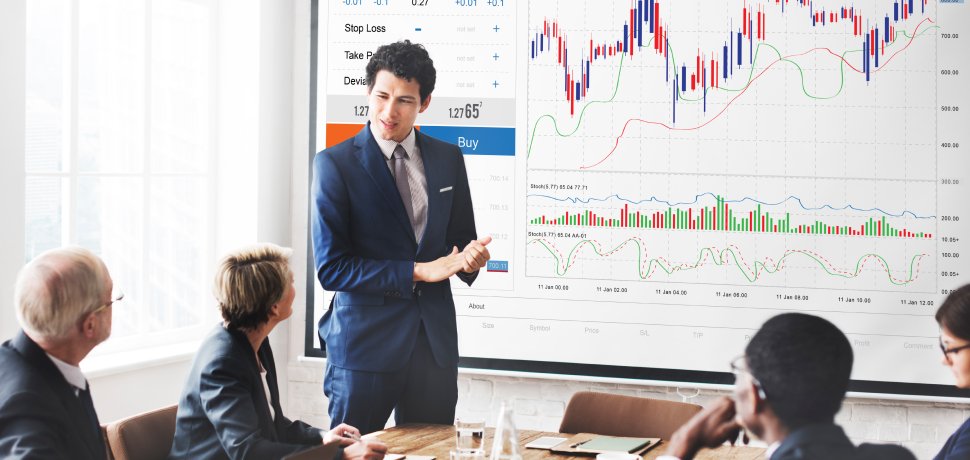Enhancing Trading Skills: The Power of Backtesting and Demo Trading

Introduction:
Successful forex trading requires a combination of knowledge, skills, and experience. As a trader, you have access to powerful tools that can help you enhance your trading skills and refine your strategies. In this blog post, we will explore two such tools: backtesting and demo trading. These techniques allow you to test your trading strategies, gain valuable insights, and practice without risking real money. Discover the power of backtesting and demo trading and how they can contribute to your growth as a forex trader.
The Importance of Backtesting
Backtesting involves simulating trades on historical market data to evaluate the performance of a trading strategy. Here's why backtesting is a valuable tool for enhancing your trading skills:
Strategy Evaluation:
Backtesting allows you to assess the viability and profitability of a trading strategy before risking real money. By applying your strategy to historical data, you can analyze its performance, including win rate, risk-reward ratio, and drawdowns. This evaluation helps you identify strengths and weaknesses, refine your strategy, and make data-driven adjustments.
Market Understanding:
Backtesting exposes you to various market conditions and scenarios. It helps you understand how your strategy performs during different market trends, volatility levels, and economic events. This knowledge enhances your ability to adapt to changing market conditions and make informed trading decisions.
Risk Management:
Backtesting provides insights into the risk management aspects of your strategy. By analyzing historical data, you can identify potential risks and adjust your position sizing, stop-loss levels, and take-profit targets accordingly. This risk analysis helps you optimize your risk-reward ratio and protect your trading capital.
Confidence Building:
Backtesting builds confidence in your trading strategy. Seeing positive results and understanding the historical performance of your strategy instills a sense of confidence and discipline. This confidence can prevent impulsive decision-making and help you stick to your trading plan during real-time trading.
The Benefits of Demo Trading
Demo trading involves practicing trading strategies in a simulated trading environment using virtual funds. Here's why demo trading is an invaluable tool for honing your trading skills:
Risk-Free Environment:
Demo trading allows you to practice without the fear of losing real money. It provides a safe space to test new strategies, experiment with different techniques, and familiarize yourself with trading platforms. This risk-free environment helps you gain confidence and develop a disciplined approach to trading.
Real-Time Market Experience:
Demo trading provides an experience that closely resembles real-time trading. It allows you to observe price movements, execute trades, and manage positions as if you were trading with real money. This real-world experience helps you understand the dynamics of the forex market and develop your trading instincts.
Strategy Refinement:
Demo trading provides an opportunity to refine and optimize your trading strategies. By tracking and analyzing your demo trades, you can identify patterns, strengths, and weaknesses in your approach. This feedback allows you to make adjustments, fine-tune your strategies, and improve your overall trading performance.
Psychological Preparation:
Demo trading helps you develop emotional resilience and psychological preparedness for real trading. It exposes you to the ups and downs of the market, allowing you to experience the emotional impact of gains and losses. This experience prepares you to manage emotions, make rational decisions, and control impulsive actions during real-time trading.
Combining Backtesting and Demo Trading for Optimal Results
To maximize the benefits of backtesting and demo trading, consider the following approach:
Develop a Trading Strategy:
Start by formulating a trading strategy based on your analysis and understanding of the market. Define clear entry and exit rules, risk management parameters, and position sizing guidelines. Document your strategy for future reference.
Backtest Your Strategy:
Apply your trading strategy to historical market data using backtesting software or platforms. Analyze the performance metrics and evaluate the effectiveness of your strategy. Refine your approach based on the results and make necessary adjustments.
Demo Trade Your Refined Strategy:
Once you have refined your strategy through backtesting, transition to demo trading. Execute your strategy in a simulated trading environment, closely monitoring the results. Continuously analyze and fine-tune your approach based on the insights gained from demo trading.
Transition to Live Trading:
After consistently demonstrating profitability and confidence in your demo trading, you can consider transitioning to live trading with real money. Start with a small trading account and apply strict risk management principles. Remember to remain disciplined, stick to your trading plan, and learn from every trade.
Conclusion: Leveraging Backtesting and Demo Trading for Success
Enhancing your trading skills is a continuous journey that requires practice, discipline, and a commitment to learning. Backtesting and demo trading are powerful tools that can significantly contribute to your growth as a forex trader. Backtesting allows you to evaluate your strategies, identify strengths and weaknesses, and refine your approach based on historical data. Demo trading provides a risk-free environment to practice your strategies, gain real-time market experience, and develop the psychological resilience needed for successful trading. By combining these techniques, you can optimize your trading skills, build confidence, and work towards achieving consistent profitability in the dynamic world of forex trading.
Disclaimer: The information provided in this blog post is for educational purposes only and should not be considered as financial advice. Always conduct your own research and consult with a qualified financial professional before making any investment decisions.